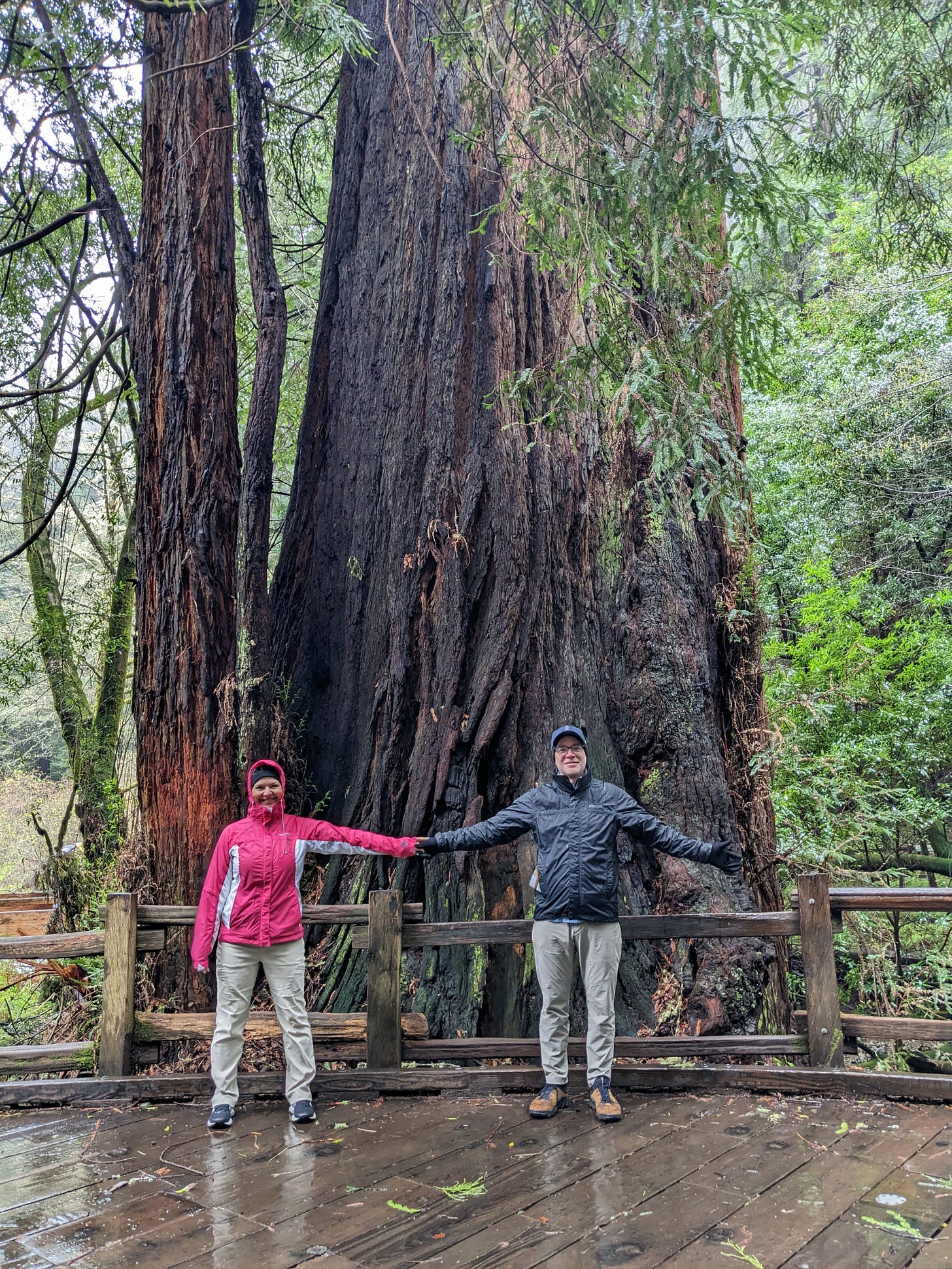In August of 2019, Greta Thunberg spent two weeks sailing from England to New York to attend the United Nations Climate Action Summit (not one of the COPs). She could have flown in 7 hours, but instead made a statement about lowering her carbon footprint and became the face of emerging climate activists. Depending on which politicians or news channel you listen to, she’s either the best or the worst human on the planet. Like most of us (all but two, logically speaking), I suspect she’s actually somewhere in between.
But this brings up an important point about my impending adventure that everyone should be thinking: OK Jim, you’re advocating that we should all be taking better care of the planet, and the chief plank in your platform is that we have to reduce the emission of greenhouse gases (I’ll address that point more specifically in a future post); but to do this you’re going to fly in a jumbo jet half-way around the world?! Isn’t that more than a tad hypocritical?
I’m hoping to convince you (or at least convince myself) that it is less than a tad hypocritical… maybe it’s just a scintilla of hypocrisy.
Let’s do some math
First, it’s not half-way around the world. The world is 24,901 miles around at the equator. From South Bend, IN (my point of departure) to Dubai, it is only 7,198 miles as the crow flies. By my math, that is less than a third of the way around the world! But of course as I noted in a previous post, flying rarely goes as the crow flies. This one, though, isn’t too bad. Delta says that I’ll earn 8,219 frequent flier miles for the trip there.
Still, that takes more than a smidgen of fuel. I’m told that a Boeing 777 (which I’ll be flying on for two of those three legs — no, not out of South Bend!) burns about 15,500 pounds of fuel per hour. And for every pound of jet fuel that is burned, 3.16 pounds of is added to the atmosphere. How can that be, you ask? Because when you burn fuel, which is mostly carbon and hydrogen, it combines oxygen from the air with the hydrogen to make H2O (emitted as water vapor), and it combines oxygen with carbon to make CO2.
That means my jet is pumping out almost 50,000 pounds of CO2 per hour. Considering just my Atlanta to Paris leg, that is about a 9 hour flight, so it’s responsible for 450,000 pounds of CO2. That doesn’t sound good. But it is taking 400 people there, so if we do a per person calculation, I’m only responsible for 1,125 pounds of CO2 on that leg of the journey.
By comparison, a car that gets 30 miles to the gallon emits about 0.65 pounds of CO2 per mile. So if I were to drive by myself from Atlanta to Paris (yes, I know… just play along), that’s about 4,400 miles and I would be responsible for 2,860 pounds of CO2.
To put that in perspective, humans are responsible for emitting about 40 billion tons of CO2 per year. I used myclimate.org to calculate more precisely the amount of CO2 my entire trip is producing. You can put in your exact itinerary, plane models, and seating class you’ll be flying, and this tells me that for my trip from South Bend, to Atlanta, to Paris, to Dubai and back again, I’ll be responsible for 5.3 tons of CO2.
That means my trip to COP28 is only responsible for 0.0000000135% of the total CO2 emissions for the year — not even a jot or an iota. Is that so bad?
Yes. The answer to that question is: yes, it’s still bad. So what am I doing about it?
Let’s do some justification (or rationalization?)
First, both organizations I’m working with for this trip (BioLogos and CCOP), purchase carbon offsets for all flights their people take. Check out Climate Stewards which not only lets you calculate your carbon footprint, but also has active projects around the world you can contribute to in order to offset your CO2 production.
For example, planting a tree might sound like a cliché, but it really does remove CO2 from the atmosphere. An average tree might absorb 1 to 1.5 tons of CO2 over its lifetime to produce the wood it is made of. A few of those will pay my carbon debt for this trip. The redwoods like these here can sequester several hundred tons of CO2 over their lifetimes.

Secondly, I’d suggest that we should look at one’s overall lifestyle and carbon footprint rather than each individual action. Here I’ll note that I have installed solar panels at my house, and I drive an all electric car that can be charged directly from my solar panels. That helps. But I do travel more than the average person.
This news story from The Guardian reports that the top 1% of people in the world according to income are responsible for more carbon emissions than the bottom 66% of the world’s people. (If you’re wondering if you’re in the top 1% and you’re an American, you probably are — check here.) And guess which of those groups is going to suffer more from the climate change being induced by carbon emissions?
That leads me to my final attempt at justifying my trip: climate change is a justice issue and that needs to be loudly proclaimed. If you’re a one percenter, you’re probably going to be fine as the climate becomes more unlivable. We can turn up the AC, pay for disaster insurance, and buy food flown in from places that can still produce it. But the bottom 66% won’t be able to. They are going to suffer. And they are not the ones causing it. That’s not right, and the world needs to hear it.
An event like COP28 does put a lot of CO2 into the atmosphere. They claim they will be reducing and offsetting that (perhaps I’ll report from Dubai on what I experience in that regard). But when you bring 40,000 people from around the globe to one place, it’s going to result in a lot of emissions. So why do it?
Events like this capture the attention of the world. And we need the world’s attention right now. As the saying goes, you have to spend money to make money. In this case the more applicable phrase might be: you have to use some energy to save more energy in the long run. Or even more specific: in order to get the word out and convince the world that we need to drastically reduce our emission of CO2, we’re going to have to emit some CO2.
COP28 will generate lots of loud messaging about the climate crisis from lots of different people with different agendas (including the petrostate of UAE that is hosting us). I’m merely a speck or a mote on that grand stage, but I’ll attempt to act as a guide through this newsletter. And I hope that by going there myself it will add some credibility and visibility to my messaging. Of course I have an agenda too, and that will be to highlight issues of justice.
Thanks for listening.





Very interesting!
I’m looking forward to hearing about it!